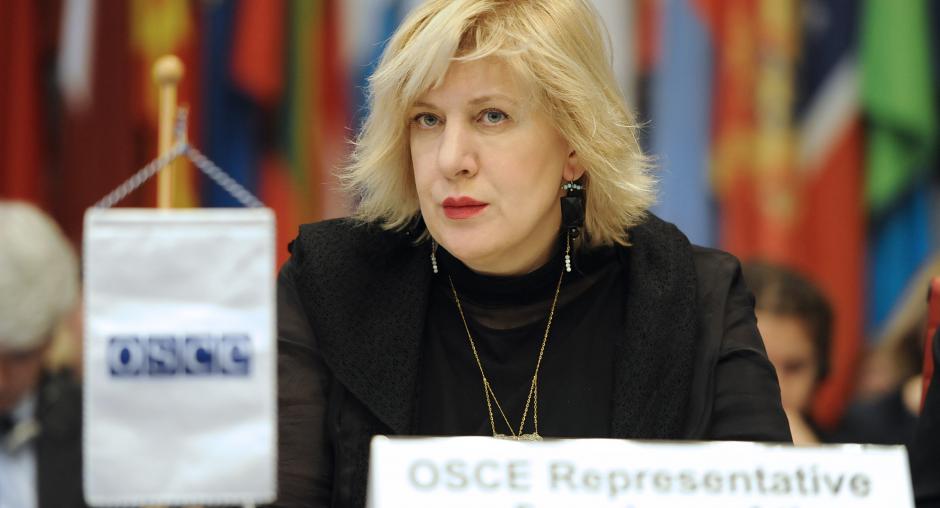Communiqué by OSCE Representative on Freedom of the Media on blocking television channels

Recently politicians, lawmakers and regulators in Ukraine have expressed concern about the influence of Russian television on information security or other national interests. These concerns are often followed by actions that effectively suspend or ban all or some programmes produced in Russia. In a similar development, de facto authorities in Crimea several weeks ago abruptly and brutally switched off almost all Ukrainian television channels and replaced them with channels originating from the Russian Federation.
While the OSCE Representative on Freedom of the Media has expressed her opinion on specific incidents in the recent weeks, she would like to summarize her position on the issue as a whole.
In the Helsinki Final Act, participating States agreed to be bound by and fulfil their obligations as set forth in the international declarations and agreements in the area of free expression, including international agreements on human rights.
According to Article 19 of the International Covenant on Civil and Political Rights (ICCPR), “everyone shall have the right to freedom of expression; this right shall include freedom to seek, receive and impart information and ideas of all kinds, regardless of frontiers, either orally, in writing or in print, in the form of art, or through any other media of his choice.”
However, the ICCPR also notes that this right carries special duties and responsibilities. It, therefore, may be subject to certain restrictions, but these shall only be ones that are clearly spelled out in national law and applied only when they are necessary to protect other fundamental values and rights.
If such restrictions are adopted by lawful institutions, such as legislatures, in accordance with the rule of law, and if the restrictions pursue a legitimate aim, and are necessary and proportional in scope, then they can indeed be recognized as appropriate.
An independent court system presents an appropriate venue to debate the restrictions to the right guaranteed by Article 19. A national court decision about the legality of such restrictions can be appealed and, in the case of many participating States, even challenged in the European Court of Human Rights as a violation of freedom of expression.
These are procedures that should be accepted and respected all across the region.
Arbitrary attempts to restrict media pluralism must be opposed. Media freedom is dependent on a healthy and vibrant and competitive media landscape which includes voices that provide a variety of news and views in different languages coming from different countries. At all times, and especially in difficult times, blocking is not the answer; more debate is.
At the same time I see a danger to media pluralism in the very existence of state-owned and state-controlled media as they can be easily used to promulgate state propaganda – the evil all international media-freedom agreements aspire against. Therefore, I use these opportunities to call for the transformation of state media into public service broadcasters and private media across the OSCE region.
I call on all participating States to stop the information war, stop the manipulation with media and to ensure journalists’ safety.
History has taught us more than once that limits on media freedom for the sake of political expediency leads to censorship and, when begun, censorship never stops.
As the OSCE Representative on Freedom of the Media I call on participating States to refrain from blocking media to avoid arbitrary and politically motivated actions which could impede the expression of alternative positions.
At the same time I recall the need to strengthen and further develop compliance with relevant OSCE principles and commitments, including alleged serious instances of intolerance by participating States which utilize media in violation of the principles referred to in the Budapest Document, Chapter VIII, paragraph 25, and in the Decisions of the Rome Council Meeting, Chapter X[1].
Dunja Mijatović
OSCE Representative on Freedom of the Media
Vienna, 27 March 2014
Recent statements of the RFOM on banning TV channels in Ukraine:
www.osce.org/fom/115832
www.osce.org/fom/116312
www.osce.org/fom/116240
www.osce.org/fom/116208
www.osce.org/fom/115983
[1] Decision No 193 of the Permanent Council. 5 November 1997. Establishment of the Office of the OSCE Representative on Freedom of the Media, Mandate of the OSCE Representative on Freedom of the Media.
